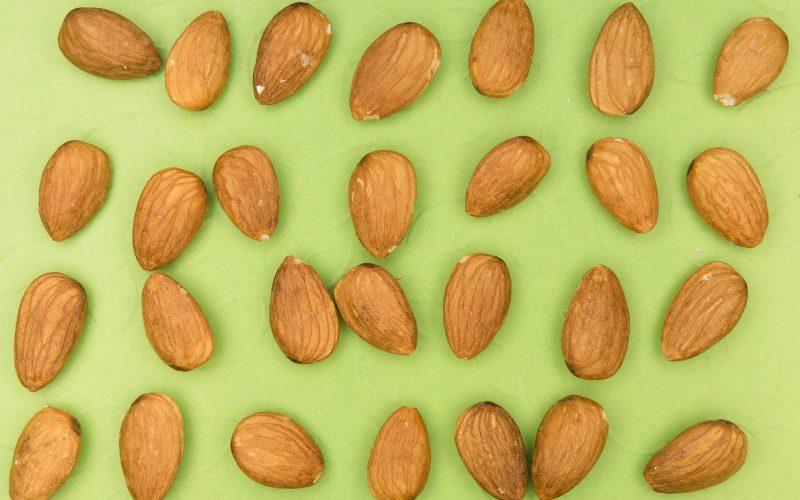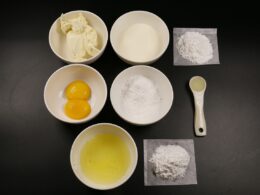Almond milk seems to be everywhere these days, from cereal to lattes, and it isn’t the only non-dairy milk option if you have an allergy or aversion to almonds.
Maybe you want to try something new, and there are plenty of substitutes for almond milk. These include coconut milk, rice milk, hemp milk, and soy milk.
At the same time, almond milk works well in sweet recipes and cereal. The other dairy-free milk is best suited for savory recipes and cooking applications like sauces and soups.
1. Coconut Milk
Coconut milk is a dairy substitute for almond milk. It is considered creamy and high in calcium. Most non-dairy glasses of milk are fortified with added vitamins, but coconut milk naturally has all its nutrients.
No supplementation is necessary, and it’s relatively low in calories (about 60 per cup), making it a good choice.
If you count your caloric intake, coconut milk can be substituted 1:1 in recipes that call for regular dairy milk. Just use reduced-fat coconut milk to cut back on saturated fat even more.
2. Rice Milk
Rice milk is an excellent substitute for almond milk if you don’t want to give up your favorite almond milk. However, if you have a sensitivity to nuts, it has a mild flavor, similar to soy milk. Unlike almond milk, rice milk doesn’t contain calcium (and isn’t fortified).
This means that it should be enjoyed as an occasional drink instead of consumed regularly if you want to ensure that you are getting enough calcium in your diet.
You can also try coconut milk by adding almonds or other nuts to your diet. Nevertheless, it’s slightly thicker than regular milk but still contains a unique coconut taste.
If you prefer a more neutral flavor, go with vanilla-flavored varieties. Vanilla-flavored coconut milk makes a delicious coffee creamer!
3. Hemp Milk
If you want to keep your milk in a glass, hemp milk is probably your best bet. It’s made from hulled hemp seeds, making it a great source of vegetarian protein and omega-3 fatty acids.
Just make sure to buy unsweetened varieties that contain no more than 2 grams of carbs per serving. Also, some brands add sugar as a substitute for almond milk. If you go with a sweetened variety, scan nutrition labels carefully!
4. Flaxseed Milk
Oatly Oat Drink is an excellent product to use as substitutes for almond milk. It has a creamy, satisfying texture and enough flavor to subdue a morning smoothie.
But not enough that it ruins your latte; another great option is Good Karma Flax milk or Westsoy Original Unsweetened Organic Soymilk.
To summarize, both are available at most natural grocery stores and will be kept in your fridge for about one week. If you’re having trouble finding any of these brands, try making your flaxseed milk.
One cup of flaxseed yields 3 cups of the finished product. So be sure to put aside plenty to use throughout the week—but it’s well worth it.
5. Cashew Milk
Because cashews are easier to digest than other nuts, they’re great substitutes for almond milk. If you have trouble with nut allergies, you can find them in bulk at most grocery stores.
Blend 2 cups of cashews with 3 cups of water until very smooth. Strain through a mesh strainer or cheesecloth (and press out all that liquid!).
If you want to add a sweetener, try dates or maple syrup. For extra thickness, blend in some oat flour (made by combining oats until completely powdery). Find out more about why cashews make excellent substitutes for almond milk here.
6. Hazelnut Milk
Nut milk, such as hazelnut milk, is a delicious way to add nutrient-rich fats to your diet. If you’re not a fan of almond milk, you love hazelnuts as substitutes for almond milk. A bit of extra planning stands between you and nutty bliss.
In detail, soak 2/3 cup of raw hazelnuts in a water bowl overnight, discarding any unabsorbed water. Blend with 1 cup of filtered water until smooth.
Add one pitted date or a few tablespoons of coconut oil for an even creamier texture. Hazelnut milk will be in an airtight container in your refrigerator for five days.
7. Cowpea Milk
Cowpeas, also known as black-eyed peas or cowpeas, are great substitutes for almond milk. They can easily be blended with other ingredients to create a dairy-free milkshake or added to your cereal almond milk.
Cowpeas also offer high levels of protein and fiber, both essential nutrients that help lower cholesterol levels. If you choose to use canned cowpeas in your recipe, you can purchase them in dry form or as a canned product.
Moreover, it’s best to rinse them before blending them into your drink to remove any salt that may have been added during processing. Be sure not to overcook them because they become mushy when cooked too long!
8. Sesame Milk
Sesame milk is delicious and has many nutritional benefits, including magnesium, calcium, manganese, potassium, and protein.
Sesame milk also contains vitamins B1 and B2. It can be used just like almond milk in any recipe that requires dairy substitutes for almond milk. Just one cup of sesame milk has nearly 8 grams of protein! Here are more recipes that use sesame milk.
Also, pumpkin seed milk substitutes for almond milk: Pumpkin seeds have many health benefits, including being high in iron, zinc, and selenium.
Pumpkin seeds also contain many vitamins, such as riboflavin, niacin, thiamine, and pantothenic acid. They contain no cholesterol or saturated fat, so they’re good for your heart health!
However, pumpkin seed milk is rich in protein and fiber, just like sesame milk. So it will keep you full longer than other non-dairy pints of milk. Use it to make chia pudding or add sweetness to smoothies with dates or bananas.
9. Sunflower Milk
Sunflower milk is made from sunflower seeds. However, you can purchase it from your grocery store. Making your sunflower milk substitutes for almond milk is easy and inexpensive.
To make 1 cup of sunflower milk, you need two tablespoons of raw sunflower seeds. Combine two tablespoons of sunflower seeds with one cup of water in a blender or food processor.
Also, blend at high speed until completely smooth, about 45 seconds to one minute. Add one teaspoon of given nectar (optional) to sweeten; blend again to combine.
Homemade almond milk should be stored in an airtight container. It can also be stored in the refrigerator for up to five days or frozen for three months.
10. Pistachio Milk
If you’re trying to avoid dairy but still want to enjoy a beverage on a hot day, turn to pistachio milk. This tasty option offers just as much flavor and creamy texture as almond milk, delivering 8 grams of protein per serving.
If you can’t find it at your local grocery store, you can make your own. Blend 2 cups of unsalted roasted pistachios with 4 cups of water until smooth.
It’s a great alternative with just one ingredient and little effort required if you’re trying to cut back on dairy intake without sacrificing taste or nutrition.
11. Lupin Milk
Although it’s not as popular in America, lupin milk is an excellent substitute for almond milk. It’s gluten-free, lactose-free, has about two grams of protein per glass and is lower in sugar than cow’s milk. Like unsweetened almond milk, it comes in sweetened flavors like chocolate or vanilla.
This is to say, give it a try if you haven’t already. You can find it at most grocery stores in your area, or you can make your own by blending.
Dry roasted lupins with water and strain them through cheesecloth to remove any impurities. If you combine them yourself, then 1 cup of dry roasted lupins will yield approximately 1 cup of milk after straining.
12. Corn Milk
Corn milk contains corn starch, water, vitamins, minerals, and cane sugar. It’s fat-free. It’s cholesterol-free and contains no gluten.
Many lactose intolerant people or those allergic to nuts choose corn milk as a substitute for almond milk because it does not contain nuts or dairy products.
13. Spelled Milk
While it may not be as creamy as cow’s milk, spelled milk has more protein than almond milk. Which helps balance out some of its other nutritional shortcomings.
Be sure to use an unsweetened variety; otherwise, you’ll be defeating the purpose of substitutes for almond milk.
Alternatively, if you’re avoiding dairy, try soy milk, though it doesn’t offer much protein or calcium. It’s great when you’re cooking with savory dishes, and it tends to be less expensive.
14. Pumpkin Seed Milk
This is one of my favorite dairy-free kinds of milk! It’s nutrient-dense, gluten-free, and completely yummy. It is a bit gritty like most seed kinds of milk, but it can be fixed using a nut milk bag or cheesecloth.
Just soak 1 cup of pumpkin seeds in water overnight (the longer you soak them, the more flavor you will get).
Nevertheless, blend with 4 cups of water in a high-speed blender—strain with your cheesecloth or nut milk bag. If you want to be fancy, you can use it as an espresso creamer by adding one teaspoon of vanilla extract.
Vanilla gives everything an extra boost, substitutes almond milk, and slightly sweetens with one teaspoon of stevia.
15. Soy Milk
Although soy milk is known to have a bitter flavor, some may prefer it over almond milk. Low in fat, soy milk is rich in plant protein, omega-3 fatty acids, calcium, and potassium. Some brands of soy milk also boast that they are more nutritious than cow’s milk.
However, many food companies began using Soy instead of other oils to increase shelf life because soy contains a higher concentration of vitamins A, D, and E.
In addition, soy contains isoflavones, compounds proven to help prevent disease and increase bone density in women.
Who is at risk for osteoporosis after menopause? These same properties can also aid men who already suffer from low testosterone levels.
Also, be very careful when buying flavored versions as substitutes for almond milk for prostate cancer, though!
16. Oat Milk
Oat milk is a creamy and delicious dairy that can be substituted for almond milk in virtually any recipe.
To make oat milk, you’ll need rolled oats, water, almonds (for texture), cinnamon (optional), and vanilla extract (optional).
Nevertheless, add 3 cups of water to a blender and 1 cup of oats to get started. Blend until thoroughly combined, and pour the mixture into a fine-mesh strainer lined with cheesecloth or a nut bag.
Conclusion
How to substitute for almond milk in a recipe depends on how you want to use it. If you’re looking for a substitution that will add creaminess to your dish. Cashew milk is a good option: coconut milk, coconut oil, or macadamia nut oil.
Therefore, Soymilk is also creamy and rich but has no taste. Instead, you can use sweeteners like maple syrup or honey to make it palatable.
Rice milk is an excellent choice for baking because of its neutral flavor. Non-dairy bowls of milk also usually have a high protein content. Almond milk typically has three grams per cup, a bonus for building muscle or losing weight.







